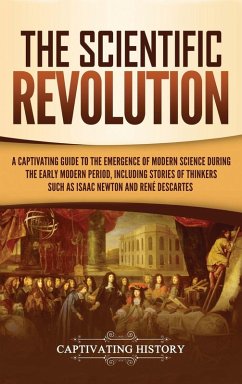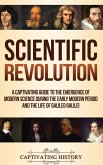If you want to discover the captivating history of the Scientific Revolution, then keep reading... Ancient cultures have been looking up at the stars for thousands of years, wondering about their place in the universe. What were those glowing spots in the black cover of night? Just how far away was the moon? These and other questions hounded humanity through the millennia until, finally, relative economic stability allowed for a number of people to examine their world more closely. Slowly, knowledge and understanding accumulated generation by generation until the conditions were ideal enough for a revolution to occur in thinking, experimentation, worldview, and natural philosophy. It was the Scientific Revolution, the time period when Western theologians had more and better tools to measure and make sense of the things around them. With careful measurements, precise data collection, and an unwavering sense of curiosity, humankind stepped into the future. The truly magnificent feature of this time period, besides, of course, the scientific discoveries themselves, was the kinship between philosophers, scientists, and experimental hobbyists throughout Europe. Hundreds, if not thousands, of letters between great intellectuals such as Isaac Newton, Johannes Kepler, Robert Hooke, and Tycho Brahe have been preserved, demonstrating how these men (and a few women) worked in cooperation with one another in order to better their own research. In The Scientific Revolution: A Captivating Guide to the Emergence of Modern Science During the Early Modern Period, Including Stories of Thinkers Such as Isaac Newton and René Descartes, you will discover topics such as Science: A Definition and Brief Prehistory The Early Western Sciences Paracelsus Nicolaus Copernicus Luigi Anguillara Andreas Vesalius Ignazio Danti Tycho and Sophia Brahe Paul Wittich Sethus Calvisius Joseph Goedenhuyze Giordano Bruno Conrad Gessner Johannes Kepler Daniel Sennert Galileo Galilei William Harvey René Descartes Robert Boyle Antonie van Leeuwenhoek Isaac Newton Robert Hooke Maria Sibylla Merian Maria Winckelmann-Kirch William and Caroline Herschel Mary Somerville And much, much more! So if you want to learn more about the Scientific Revolution, scroll up and click the "add to cart" button!
Hinweis: Dieser Artikel kann nur an eine deutsche Lieferadresse ausgeliefert werden.
Hinweis: Dieser Artikel kann nur an eine deutsche Lieferadresse ausgeliefert werden.








![Captain Cader Edwards: [a Native of Wales & Soldier in the American Revolution ... Died in Sullivan Co., Tenn. 1782] Captain Cader Edwards: [a Native of Wales & Soldier in the American Revolution ... Died in Sullivan Co., Tenn. 1782]](https://bilder.buecher.de/produkte/67/67257/67257862m.jpg)